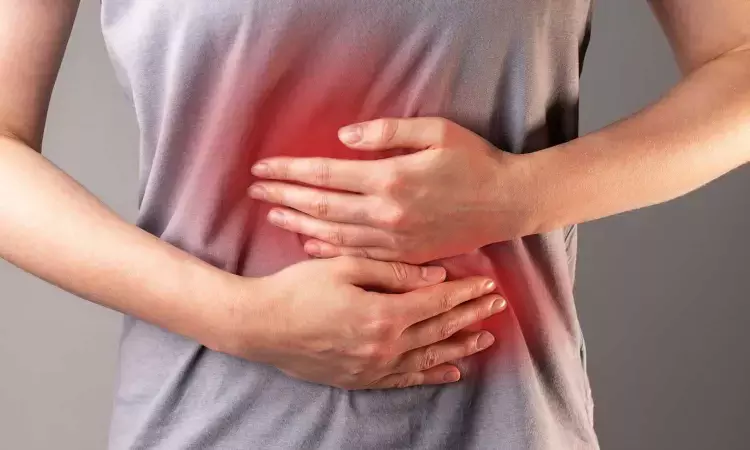- Home
- Medical news & Guidelines
- Anesthesiology
- Cardiology and CTVS
- Critical Care
- Dentistry
- Dermatology
- Diabetes and Endocrinology
- ENT
- Gastroenterology
- Medicine
- Nephrology
- Neurology
- Obstretics-Gynaecology
- Oncology
- Ophthalmology
- Orthopaedics
- Pediatrics-Neonatology
- Psychiatry
- Pulmonology
- Radiology
- Surgery
- Urology
- Laboratory Medicine
- Diet
- Nursing
- Paramedical
- Physiotherapy
- Health news
- Fact Check
- Bone Health Fact Check
- Brain Health Fact Check
- Cancer Related Fact Check
- Child Care Fact Check
- Dental and oral health fact check
- Diabetes and metabolic health fact check
- Diet and Nutrition Fact Check
- Eye and ENT Care Fact Check
- Fitness fact check
- Gut health fact check
- Heart health fact check
- Kidney health fact check
- Medical education fact check
- Men's health fact check
- Respiratory fact check
- Skin and hair care fact check
- Vaccine and Immunization fact check
- Women's health fact check
- AYUSH
- State News
- Andaman and Nicobar Islands
- Andhra Pradesh
- Arunachal Pradesh
- Assam
- Bihar
- Chandigarh
- Chattisgarh
- Dadra and Nagar Haveli
- Daman and Diu
- Delhi
- Goa
- Gujarat
- Haryana
- Himachal Pradesh
- Jammu & Kashmir
- Jharkhand
- Karnataka
- Kerala
- Ladakh
- Lakshadweep
- Madhya Pradesh
- Maharashtra
- Manipur
- Meghalaya
- Mizoram
- Nagaland
- Odisha
- Puducherry
- Punjab
- Rajasthan
- Sikkim
- Tamil Nadu
- Telangana
- Tripura
- Uttar Pradesh
- Uttrakhand
- West Bengal
- Medical Education
- Industry
COVID-19 associated with increased risk to develop gastrointestinal disorders

COVID-19 is associated with an increased risk of developing long-term gastrointestinal disorders, including irritable bowel syndrome. This is what has been shown by a research published in the journal Gut, carried out by scholars of the University of Bologna and the IRCCS AOU S.Orsola Bologna.
"The data we collected show that those who have contracted COVID-19 experience gastrointestinal symptoms more frequently than those who have not been affected by it," explains Giovanni Barbara, full professor at the Department of Medical and Surgical Sciences at the University of Bologna and coordinator of the study. "Given the vast spread of COVID-19 globally, we should therefore expect an increase in diagnoses related to gut-brain interaction disorders."
It is well known that viral infections can affect the gastrointestinal system and specifically promote the development of irritable bowel syndrome. This condition tends to be chronic, characterized by a number of intestinal disorders affecting the colon, including altered bowel motility, bloating, and abdominal cramping. Until now, however, it was unclear whether coronavirus infection could also lead to these consequences.
The researchers then conducted a prospective survey with the aim of assessing the prevalence of gastrointestinal symptoms and gut-brain interaction disorders in patients hospitalized for SARS-CoV-2 infection. The study involved 2183 patients hospitalized in 36 facilities in 14 countries: Italy, Bangladesh, Cyprus, Egypt, Israel, India, Macedonia, Malaysia, Romania, Russian Federation, Serbia, Spain, Sweden, and Turkey. Patients who had contracted COVID-19 were evaluated upon admission to the hospital and then followed up for the next 12 months, comparing their condition with that of patients not infected with the coronavirus.
The data collected and analysis carried out by the scholars thus showed that patients hospitalized for COVID-19 more frequently reported the presence of gastrointestinal symptoms (59.3%) than the control group (39.7%). And new diagnoses of irritable bowel syndrome also emerged more frequently, which were found to be associated with the coexistence of allergies, breathing difficulties during hospitalization for COVID-19, and chronic intake of proton pump inhibitors (gastroprotectant drugs that block acid production in the stomach). In addition, at 6 months and 12 months after hospitalization, higher levels of anxiety and depression were reported among those who had COVID-19.
"We know that the SARS-CoV-2 virus can also infect the gastrointestinal tract, and this confirms the possibility that COVID-19 can lead to the development of irritable bowel syndrome," explains Giovanni Marasco, a researcher at the Department of Medical and Surgical Sciences at the University of Bologna and first author of the study. "Traces of the coronavirus were indeed found in the small intestine even six months after infection: this leads us to believe that the prolonged state of inflammation and activation of the immune system may lead to the development of the gastrointestinal symptoms that were observed."
Reference:
Marasco G, Cremon C, Barbaro MR the GI-COVID19 study group, et alPost COVID-19 irritable bowel syndrome Gut 2023;72:484-492.
Dr Kamal Kant Kohli-MBBS, DTCD- a chest specialist with more than 30 years of practice and a flair for writing clinical articles, Dr Kamal Kant Kohli joined Medical Dialogues as a Chief Editor of Medical News. Besides writing articles, as an editor, he proofreads and verifies all the medical content published on Medical Dialogues including those coming from journals, studies,medical conferences,guidelines etc. Email: drkohli@medicaldialogues.in. Contact no. 011-43720751


